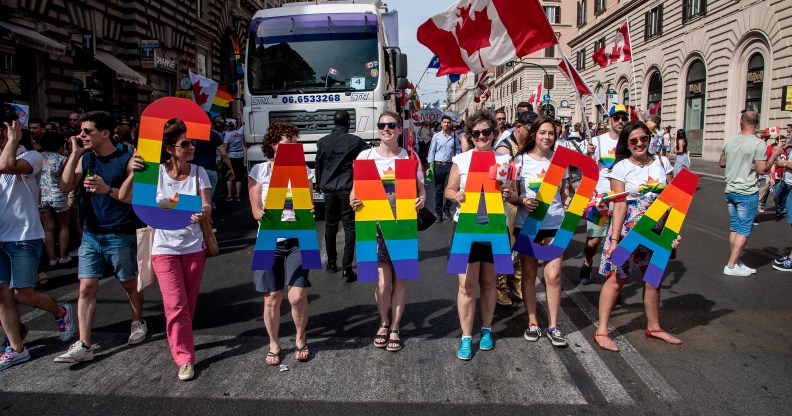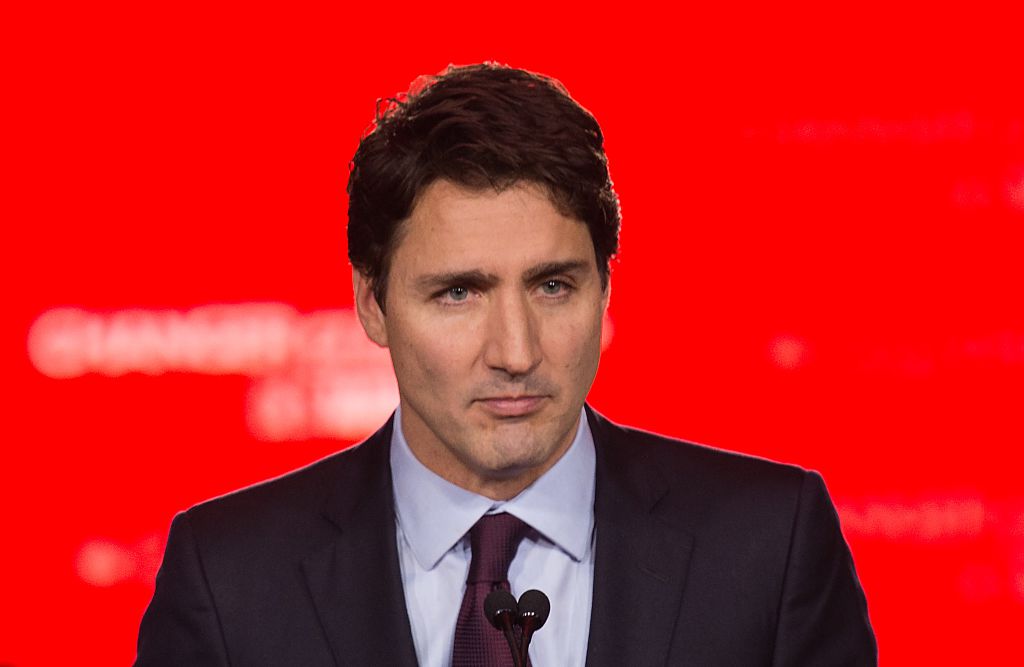Canadian ‘LGBT purge’ victims to receive compensation

The Canadian government began rooting out LGBT+ federal employees during the Cold War because it thought they posed a threat to national security.(Stefano Montesi – Corbis/Corbis via Getty Images)
718 victims of Canada’s “LGBT purge” are receiving compensation for the discrimination they suffered because of “state-sponsored homophobia, bi-phobia and transphobia.”
Canada’s “LGBT purge” is the name given to policies which lasted from the 1950s until the 1990s, under which Canadian federal employees were discharged, demoted, and discriminated against for being LGBT+.
The class action lawsuit settlement was agreed to in 2018, and victims are now beginning to receive money.
According to The Canadian Press, between $50 million and $110 million in overall compensation will be given by the Canadian government, with eligible victims receiving between $5,000 and $175,000 depending on the seriousness of their cases.
According to LGBT Purge Class Action: “Canada has a sordid history of what can be termed as state sponsored homophobia, bi-phobia and transphobia.
“For decades there was a policy aimed at oppressing and consequently criminalising same-sex conduct through ‘heteronormalisation.'”
LGBT Purge Class Action is organisation that was set up to help victims of the purge reach the historic settlement, and said that victims “were systemically discriminated against, harassed and often fired as a matter of policy and sanctioned practice. They were followed, interrogated and abused.”
The Canadian government began rooting out LGBT+ federal employees during the Cold War because it thought they posed a threat to national security.
They were perceived to have sympathy with Communists, and closeted LGBT+ people were thought to be more vulnerable to blackmail.
Authorities used a creation called the Fruit Machine to supposedly identify homosexual people, which showed public servants and military personnel sexually explicit pictures and measured how they reacted and was later discredited.

Prime Minister Justin Trudeau officially apologised in 2017 for the Canada “LGBT purge.” (Getty)
Doug Elliott, who led the class action, said victims “are very damaged by their experience”
Doug Elliott, who led the class action, told The Canadian Press that he had trouble convincing eligible victims to sign on.
He said: “The main problem was that people who were aware of the settlement were having tremendous psychological difficulties filing their claims.
“It’s hard to overstate the level of paranoia. A lot of people felt that it was all a trick and a trap, and they were going to lay bare their souls to the government, and the government was going to refuse to pay them and was going to use the information against them somehow.
“These people are very damaged by their experience, and very mistrustful.
“Even the very well-adjusted ones live in a state of barely contained anxiety that something terrible is about to happen to them, particularly in the employment context.
“A lot of them fear that they’re going to show up at work, and they’re going to be suddenly fired.”
The government and Prime Minister Justin Trudeau officially apologised to victims in 2017.

